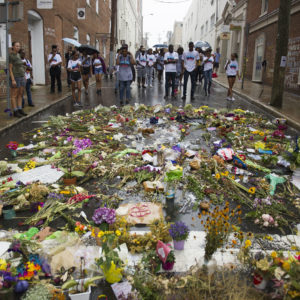The responses to the white supremacy rally and violence in Charlottesville, Virginia, have metastasized out of proportion to what happened.
The media amplification and exploitation of the events, the surrounding tensions — and virtue signaling reactions — have been irresponsible and destructive. The renewed push to erase history by removing Confederate memorabilia from public view are misguided acts — superficial symbolism based in politics that won’t have a meaningful effect in reducing white identity politics or racial discrimination.
What’s also irresponsible are some of the responses and reactions by Christian onlookers.
Achieving and maintaining a credible public Christian social witness, truth must be valued. So must humility, temperance, consistency, brotherly kindness and other qualities that are perfectly reflective of what it means to be Christian and uphold Christian character.
Much of that is lacking from countless Christian responses.
Rather than responding in a manner morally reflective of the Sermon on the Mount, many of these reactions are merely self-serving soapbox sermons that offer and misplace blame, or are steeped in racial moral grandstanding.
For example, numerous written reactions and responses from black Christians have been as foolish as they are discouraging.
These “Christian” reactions amount to scolding white Christians and pastors for contributing to white supremacy (and by extension, the racists in Charlottesville) while demanding apologies for their contributions to it. After berating alleged Christian sympathizers of white supremacy, these black Christians suggest their fellow kinfolk in Christ sit down, shut up and obediently listen to embellished, politicized accounts of racial victimization cloaked in a Christian veneer. They then oblige white Christians to clean up the racial mess white Christians created, with the possibility of earning a few racial penance points for challenging the guilt and sin of white supremacy.
It’s racially egocentric for black Christians to support racially coerced repentance. It doesn’t solve the extremes of Charlottesville (which isn’t related to Christianity) or soothe interracial tensions in the American church.
And it’s certainly not Christian.
I’ve also seen white Christians engage in hyper-remorseful apologies, pressuring other white Christians, in effect, to also hyperbolize their apologies and forcefully address the issue in a way they otherwise wouldn’t. In this mindset, not doing so augments the racial sin because silence somehow makes the silent complicit in the evil of white supremacy. These responses amount to a pro-active showmanship of racial deference, coming across as insincere attempts at sorrow that are more reflective of racial humiliation than Christian humility.
I’m not discounting the very real presence and evil of racism, particularly in the form of white supremacy (it’s obvious that it should be denounced as evil). I’m also not suggesting that Christians, regardless of color, apprehensively sit back or refuse to address racial (ethnic) issues from a deeply theological perspective. Frankly, American Christianity hasn’t engaged this theological task seriously, repentantly or consistently enough.
But I am saying the responses fall short of what they should be, based on Christian metrics.
For example, in addition to condemning race hatred and evil, what we Christians should be calling for is the same Christian response that followed in the aftermath of the Emanuel A.M.E. Church shooting in Charleston, South Carolina, back in 2015. Dylann Roof — a loner, white supremacist sympathizer, felt racially marginalized and wanted to start a race war — so he murdered nine innocent people at Bible study.
During Roof’s bond hearing, family members and loved ones of those murdered by Roof had an opportunity to confront him.
Still mired in shock and grief, Dylann Roof was offered forgiveness and was told that people were praying for his soul, despite the intense suffering and pain from their losses.
Nadine Collier, whose mother was murdered said, “I forgive you … I forgive you. And have mercy on your soul.”
Felicia Sanders, who lost her son, said tearfully, “May God have mercy on you.”
The surviving sister of the Reverend DePayne Middleton-Doctor admitted, “I’m…very angry. But … we have no room for hating, so we have to forgive. I pray God (has mercy) on your soul.”
Camryn and Chris Singleton, whose mother also died, said, “We already forgive him for what he’s done, and there’s nothing but love from our side of the family.” Camryn added, “I’m a little bitter, but I’m overwhelmed with love.”
There was no virtue signaling, racial condescension, shameful self-interested gestures masked as apologies. They were responses mired in pain but tempered by love, prayer and forgiveness that overcame white supremacy, and this response shocked the country.
This is the quality of response Christians should be calling for.

